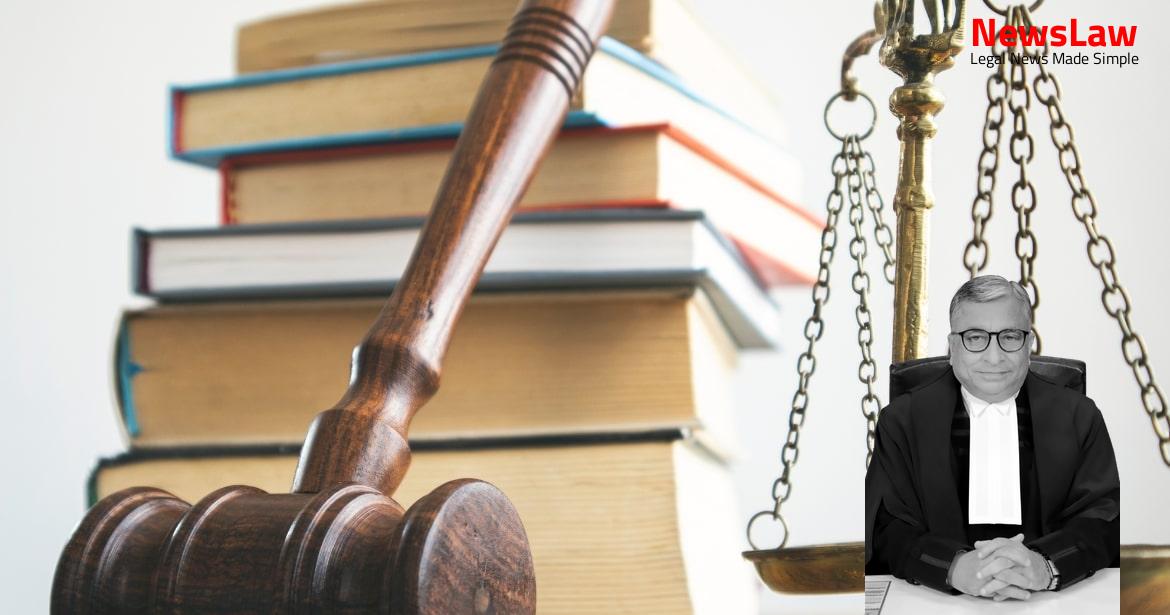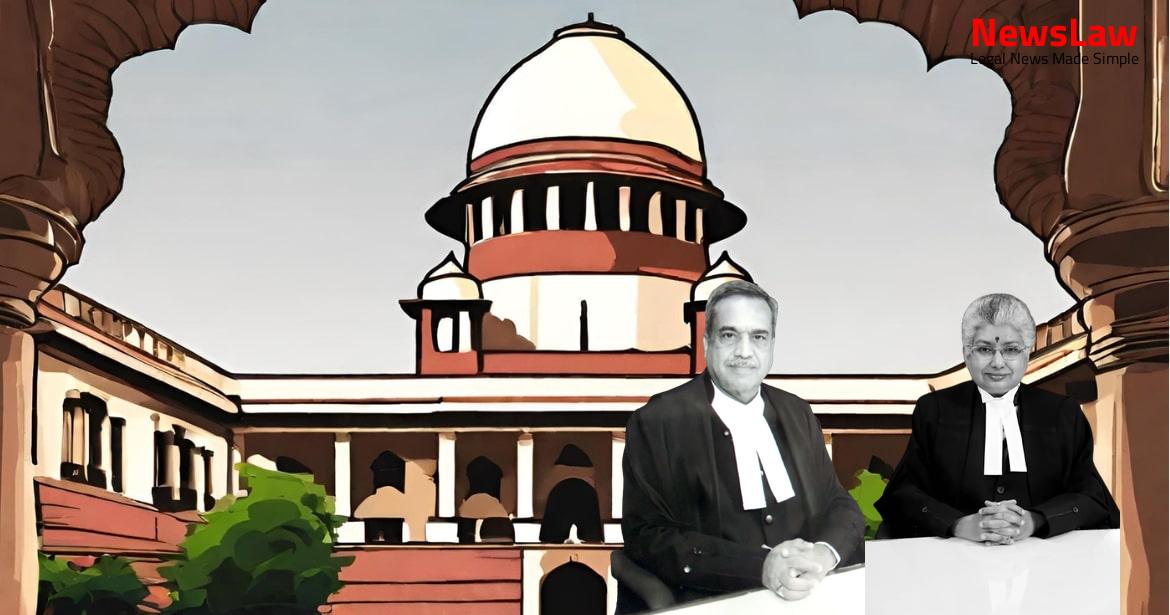In a recent legal case, the court examined the intricate issue of electricity dues liability, particularly concerning the responsibility of previous owners’ unpaid bills on subsequent purchasers. The court’s in-depth legal analysis sheds light on the obligations and rights of parties involved in such transactions. Stay tuned to learn more about the nuanced legal perspectives explored in this case.
Facts
- The property was sold to the Gramapanchayat Executive officer Ramapally for Rs. 2,48,000 as per document no. 2721/2014 dated 05/08/2014.
- Outstanding dues of Local Government amount to Rs. 83,17,152, with reserve prices for properties being Rs. 77,63,000 for property no. 01 and Rs. 5,83,37,000 for property no. 02.
- Total reserve price for 28 machineries items is Rs. 3,25,28,000.
- Successful bidder responsible for stamp duties, charges, registration charges, statutory dues, taxes, rates, and outgoing related to the properties.
- Property sold in ‘AS IS WHERE IS, WHAT IS THERE IS AND WITHOUT ANY RECOURSE BASIS’ with all statutory dues if any.
- Intending bidders advised to make discrete enquiries regarding claims, charges, encumbrances on the properties, besides the bank’s charges.
- Bidder solely responsible for any discrepancies in the property and future recourses from the date of bid submission.
- Property is a mineral water bottling plant on 1 acre 13 guntas of land in Rampally Village, Keesara Mandal, Medchal District.
- The mortgager sold a portion of the property to the Executive Officer Ramapally Gramapanchayat for Rs. 12,42,000 as per document no. 657/2015 dated 05/02/2015.
- Respondent became the auction-purchaser of the property through Syndicate Bank’s auction sale due to non-repayment of loan by M/s. SB Beverages Private Limited.
Also Read: Supreme Court Judgment on Single Till Mechanism for HRAB Calculation: A Comprehensive Analysis
Issue
- The moot point of law is whether the liability for previous electricity dues of the last owner can be imposed on the respondent.
Analysis
- The auction notice specified that the property was being sold on ‘AS IS WHERE IS, WHATEVER THERE IS AND WITHOUT RECOURSE BASIS’ under certain rules for recovering dues.
- Judicial pronouncements clarified that liability for electricity dues falls on the consumer who uses the energy, not on subsequent purchasers.
- In this case, the auction notice explicitly mentioned the liability for electricity dues as a responsibility of the purchaser.
- The auction sale was conducted with a reserve price, and the successful bid was higher than the minimum reserve.
- The sale deed stated that the property was sold free from encumbrances known to the secured creditor.
- There were specific clauses in the auction notice absolving the Authorized Officer from liabilities including electricity dues.
- The court emphasized that statutory electricity dues cannot be waived and are to be paid by the purchaser in such cases.
- The respondent, as a subsequent purchaser, was deemed responsible for clearing electricity dues mentioned in the auction notice.
- The General Terms & Conditions of Supply outlined the responsibilities of purchasers regarding electricity dues and connection reactivation.
- Paschimanchal Vidyut Vitran Nigam Limited & Ors. v. DVS Steels and Alloys Private Limited & Ors. had a similar view to NESCO case.
- Southern Power Distribution Company of Telangana Limited followed the same line as NESCO case due to similar facts.
- Agreements with consumers only serve to inform the terms and conditions of supply, not make dues purely contractual.
- In Dakshin Haryana Bijli Vitran Nigam Ltd. v. Paramount Polymers (P) Ltd., a specific clause dealing with electricity dues was considered.
- Haryana State Electricity Board v. Hanuman Rice Mills, Dhanauri & Ors. had a slightly different view on the transfer of electricity dues.
- The case of Special Officer, Commerce, North Eastern Electricity Supply Company of Orissa (NESCO) v. Raghunath Paper Mills Private Limited dealt with the scenario where outstanding dues needed to be paid by the transferee.
- If statutory rules govern the conditions for electricity supply, the distributor can insist on compliance with such rules and regulations.
- A condition for clearance of dues must be fulfilled before reconnection or new connection is provided.
Also Read: Selection and Appointment of Judicial Officers in Himachal Pradesh
Decision
- The impugned orders are not sustainable and are set aside.
- Appellant No.1 is within its right to demand arrears from the respondent-purchaser.
- The appeal is allowed with each party bearing their own costs.
Case Title: TELANGANA STATE SOUTHERN POWER DISTRIBUTION COMPANY LIMITED Vs. M/S SRIGDHAA BEVERAGES (2020 INSC 410)
Case Number: C.A. No.-001815-001815 / 2020



